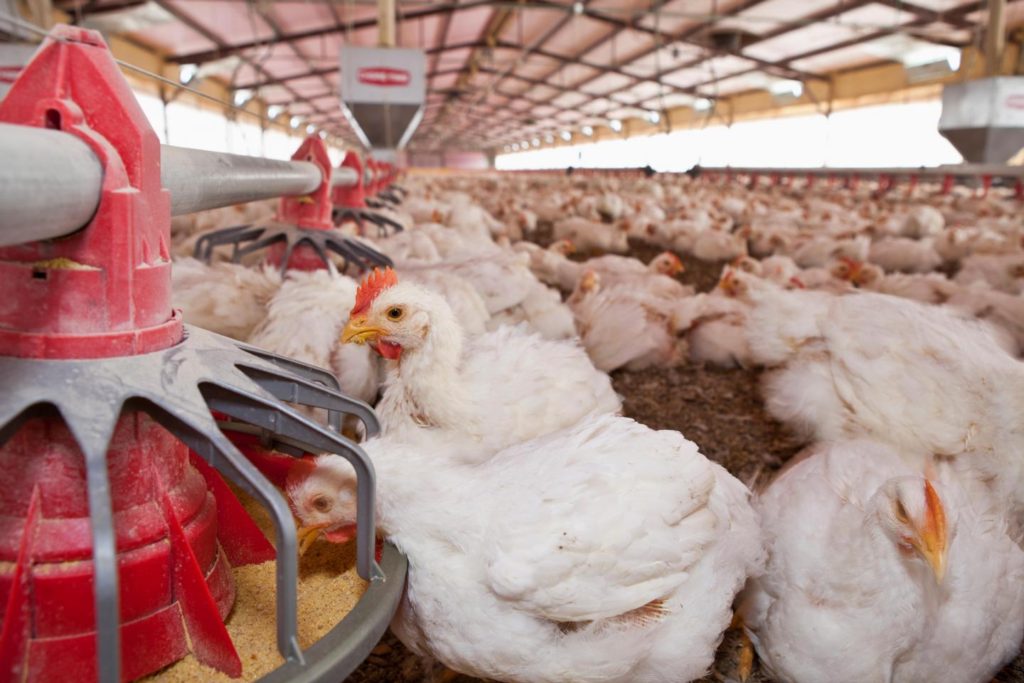DR. ROY BRISTER, Managing Director of Nutrition and Feed Mill Operations

Ever enjoyed an appetizer of frog legs before dinner at a nice French restaurant? Or perhaps you prefer a salad of seasonal greens as you wait for your roasted chicken entrée? Maybe finish with a berry torte? Turns out your palate and nutritional needs may not be that different from that chicken itself.
Jungle fowl, let’s call them wild chickens, eat insects, worms, seeds, berries and even small animals and reptiles. The first domesticated chickens on early farms ate a similar diet with the addition of the occasional spilled bag of ground corn intended for other livestock to eat. Today’s pasture-raised chickens also eat similar fare from greens and seeds to worms, insects, frogs, snakes and even mice.
Chickens’ top nutritional needs include fat, protein, vitamins and minerals like phosphorous–not too different our own nutritional needs.
Today, most chickens are raised in barns to protect them from adverse weather and predators. They’re fed a mix of corn and soybean meal with a small amount of animal protein–a diet designed to nutritionally mirror those wild chickens, but with a touch of modern science and ingredient sourcing.
On average, we use less than 5 percent animal protein that may include beef meat and bone meal, chicken meal or bakery by-product meal. Corn and soybean meal are great sources of fat and protein, while the meat and bone meal are rich in protein, calcium, phosphorus and vitamins, which help chickens grow strong and aid their digestive health. We also include prebiotics, probiotics and essential oils in our feed to keep our chickens healthy.
But walk into your local grocer today and you’ll likely find some chicken labeled vegetarian fed, often called “veg fed,” meaning their feed contained no ingredients derived from animals. These chickens are fed protein from soybeans, fats from vegetable oils, corn and other grains for energy, along with vitamins, minerals and probiotics.
Since chickens are naturally omnivores, the “veg fed” diet can sound counterintuitive. These diets are driven more from consumer desires than natural animal behavior, presumably because “vegetarian” sounds healthy to most people. However, studies show no difference in the flavor or taste of the meat from chickens that are fed a traditional diet versus veg fed chickens.
Because chickens’ expansive palates drive them to forage for a variety of food and protein sources, we try our best to provide a similar healthy, balanced diet. After all, vegetarian-fed chickens are not eating what they would naturally, especially when it comes to complete sources of protein.
That being said, we believe consumers should have choices. Therefore, some of our broiler chickens are fed nutrients derived only from plant sources. These products are labeled as veg-fed or 100% vegetarian diet.
All in all, we strive to do what’s best for chickens and still provide consumers with choices at the meat counter.
Published December 20, 2018.



0 Comments
Leave A Comment